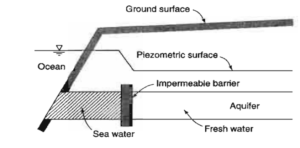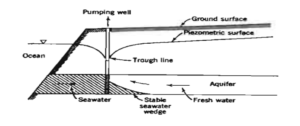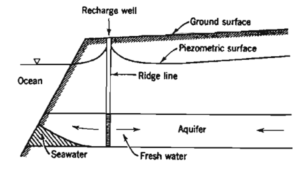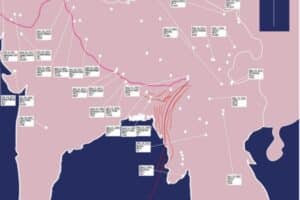How Arsenic Pollution in Bangladesh?
Both are most threatable for the local community people. Arsenic pollution occure in the central part of Bangladesh. Where as southern part suffers for the salinity intrusion. Arsenic Contamination and Salinity Intrusion in Bangladesh are not new problem. More than a decade people are suffering from this problem.
What are the Present scenario of Arsenic Contamination and Salinity Intrusion in Bangladesh?

Bangladesh is a land of rivers and many rivers flow to the Bay of Bengal through the landmass of Bangladesh. There are many hydrological problems in Bangladesh. Arsenic Contamination and Salinity Intrusion in Bangladesh.
Lets dive into the details:
Arsenic Contamination:
Most of the aquifers in Bangladesh are shallow. Arsenic concentration has been found throughout the country, especially in the central part of Bangladesh. The people are suffering from Arsenic poison in the drinking water. Some NGOs and government organizations are working to find out the actual source of the contamination and trying to increase social awareness to avoid arsenic-contaminated water for drinking purposes.
The actual causes of the Arsenic concentration have not been identified in Bangladesh. There are two hypotheses so far known to the scientist. One, the source of the Arsenic is from the underground rocks. When the groundwater table falls then Arsenic enriched minerals react with the air and after the groundwater research again Arsenic mixes with the groundwater. Another hypothesis is that, As comes from industrial chemicals and is mixed with the groundwater.
Salinity Intrusion

In the southern part of Bangladesh, the saline water intrusion is the main problem for the groundwater. The people cannot drink water due to high salinity and agriculture production has been hampered due to the saline water. Some industrial effluent mixing with the groundwater causes the underground water harmful for drinking purposes.
How to mitigate this problem:

Scientists are working for many years to identify the groundwater quality, and assess and find the suitability of the groundwater for drinking and irrigation purposes. Now, they need more knowledge and need to be more skillful in their research career. They need more funds to continue their research work with advanced knowledge. The applied knowledge to learn more about groundwater quality, assessment, and monitoring to serve the nation.
There is much scope for research on groundwater quality assessment and monitoring in the southern part of Bangladesh.





More Stories
What is an Aquifer?
Explain How Groundwater is Recharged
Groundwater and Underground Water: Comparison